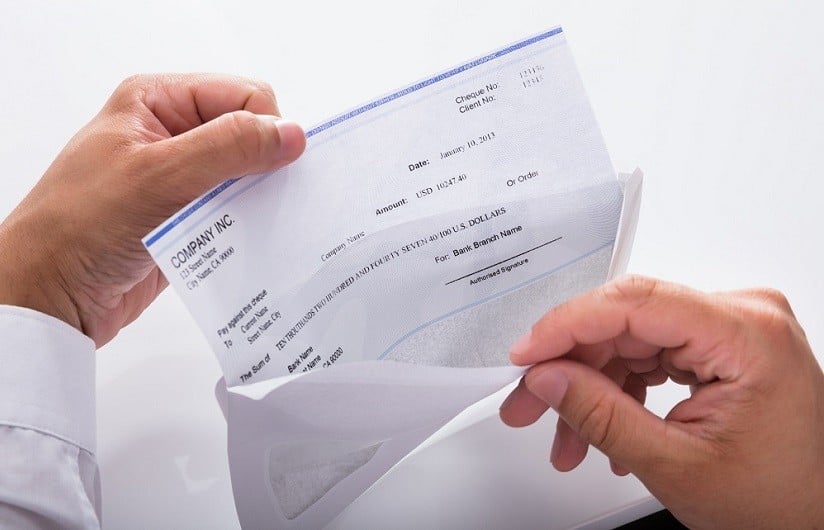As the new year begins, many people are looking for ways to save money. One way to do this is by understanding your rights when it comes to your final paycheck. In California, there are specific laws in place that dictate when and how you should receive your last paycheck. Here’s what you need to know it final paycheck law california.
Contents
What Is The Final Paycheck Law California?
In California, the final paycheck law california is designed to ensure that employees receive their last paycheck in a timely manner. This means that if you are laid off or terminated from your job, you should receive your final paycheck within 72 hours of leaving your position.
This law also extends to salaried employees who have not yet worked a full week and are being released from their position early. In these cases, you should receive your final paycheck on the day that you leave.

Guidelines For Final Paychecks In California
There are a few key things to keep in mind when it comes to the final paycheck law in California. First, you should know that your employer is not required to give you your final paycheck on the day of your termination or release. Instead, they must issue it within 72 hours of leaving your position.
Second, if you are a salaried employee, you should be paid your full salary if you have not yet worked a full week. This means that even if you were released early in the week, you will still receive your full salary for that week.
Finally, it is important to note that while most employers are required to adhere to the final paycheck law California, there are exceptions. For example, some employers may be exempt from this law due to certain factors such as the size of their business or industry regulations. As such, it is important to consult with an employment lawyer if you have questions or concerns about your final paycheck.
What You Need To Know About Final Paycheck Laws In California
In California, the final paycheck law is designed to protect employees from unfair or unethical treatment when it comes to their last paycheck. This means that if you are laid off or terminated from your job, you should receive your final paycheck in a timely manner according to specific guidelines.
Some key aspects of the final paycheck law in California include the following:
– employers are generally required to issue your final paycheck within 72 hours of your termination or release from your position;
– if you are a salaried employee, you should be paid for the full week even if you were released early in the week; and
– there may be exceptions to this law depending on factors such as the size of your business or industry regulations.
If you have questions or concerns about your final paycheck, it is important to speak with an employment lawyer who can help guide you through the process. By understanding your rights and following the guidelines set forth by the final paycheck law in California, you can ensure that you receive fair treatment from your employer at this time.

What Does A Final Paycheck In California Include?
In California, a final paycheck typically includes several key items, including your regular wages earned for the pay period, any overtime hours accrued, any vacation or sick time you have earned and not yet used, and any bonuses or commissions that you may be entitled to. Depending on the circumstances of your termination or release from your position, it may also include additional items such as accrued wages for unused vacation or sick time.
Final Paycheck Rules In California
There are several key rules that employers must follow when it comes to issuing a final paycheck in California. For example, in most cases employers must issue your final paycheck within 72 hours of your termination or release from your position. Additionally, if you are a salaried employee and have not yet worked a full week at the time of your release, you should still be paid your full salary for that week.
There may also be other specific requirements depending on the circumstances of your release and whether or not your employer is exempt from these final paycheck rules in California. To ensure that you are treated fairly at this time, it is important to consult with an employment lawyer who can help answer any questions or concerns you may have.

How Long Does An Employer Have To Pay A Final Paycheck In California?
In California, employers are generally required to issue a final paycheck within 72 hours of your termination or release from your position. This means that if you were released on Friday, for example, you should expect to receive your final paycheck by the close of business on Tuesday.
Although this is the general rule when it comes to final paychecks in California, there may be some exceptions depending on the size of your business or industry regulations. To learn more about these rules and whether or not they apply in your situation, it is best to consult with an experienced employment lawyer.
Final Paycheck Penalties In California
If your employer fails to issue your final paycheck on time in California, you may be entitled to certain penalties and compensation. For example, if your employer does not provide your final paycheck within 72 hours of your release or termination from the position, they may be subject to certain fines as well as being required to pay you for any wages that were withheld.
If you believe that your employer has violated the final paycheck rules in California and are experiencing financial hardship as a result, it is important to speak with an employment lawyer as soon as possible. They can help guide you through the legal process and help ensure that you receive the compensation you deserve for any losses incurred.
More Watching Video: How to Pay Final Pay in California
FAQ: Final Paycheck
Can an employer make deductions from a final paycheck in California?
In California, employers generally cannot make any deductions from a final paycheck unless they are legally required to do so. For example, if you have an unpaid leave of absence that is covered by the Family Medical Leave Act (FMLA), your employer may be able to deduct wages for the time period that you were absent.
Can final paycheck be direct deposit in California?
In California, there is no specific law that prohibits employers from issuing a final paycheck by direct deposit. However, if you are concerned about timely access to your funds or have any other concerns related to receiving your final paycheck via direct deposit, it is best to speak with an employment lawyer. They can help guide you through this process and answer any questions or concerns you may have.
Do you get paid 2 weeks after quitting in California?
In California, employers are generally required to issue a final paycheck within 72 hours of an employee’s release or termination from the position. However, this may vary depending on the size of your business or the industry regulations that apply to your employer. To learn more about these rules and whether or not they apply in your situation, it is best to consult with an experienced employment lawyer.
Can an employer hold your last paycheck if you quit?
In California, employers generally cannot hold back an employee’s final paycheck for any reason. However, there may be some exceptions depending on the circumstances of your release or termination from the position. To find out more about these rules and whether or not they apply in your situation, it is best to consult with an experienced employment lawyer.
What happens when you quit your job without 2 weeks notice?
In California, if you quit your job without providing two weeks’ notice, your employer may be entitled to withhold your final paycheck until the required notice period has passed. However, there may be some exceptions depending on the circumstances of your release or termination from the position. To find out more about these rules and whether or not they apply in your situation, it is best to consult with an experienced employment lawyer.
Will I still get my paycheck if I quit without notice?
In California, if you quit your job without providing two weeks’ notice, you may not be entitled to receive your final paycheck until the required notice period has passed. However, there may be exceptions depending on the circumstances of your release or termination from the position. To learn more about these rules and whether or not they apply in your situation, it is best to consult with an experienced employment lawyer.
How do I quit my job without notice?
If you need to quit your job immediately without notice, it is best to speak with an employment lawyer as soon as possible. They can help assess your situation and advise you on the appropriate course of action for quitting your job immediately. Additionally, they may be able to assist you in filing a claim against your employer if you believe that they have violated any employment laws or regulations.
How do I get my final employer pay?
If you need to get your final employer pay, there are several steps that you can take. First, it is best to consult with an employment lawyer to find out more about the laws and regulations that apply in your situation. They can also help guide you through the process of filing a claim or legal action if necessary.
Is final pay mandatory?
There is no specific law or regulation in California that requires employers to issue a final paycheck. However, there are laws and regulations that require employers to issue paychecks with certain timelines, such as within 72 hours of an employee’s release or termination from a position. To learn more about these rules and whether they apply in your situation, it is best to consult with an experienced employment lawyer.
Do you get taxed on final pay?
In California, final pay may be subject to income taxes depending on the type of compensation that you receive. For example, if your final paycheck includes any bonuses or commissions, those amounts may be taxed as regular wages. However, there may also be exceptions depending on the circumstances of your release or termination from the position. To learn more about how your final pay is taxed and whether it applies to your situation, it is best to consult with an experienced employment lawyer.
Conclusion: Final Paycheck Law California
If you are wondering about your final paycheck or what happens if you quit without notice, it is important to consult with an employment lawyer. They can help assess your situation and advise you on the appropriate legal steps to take in these situations. Additionally, they may be able to assist you in filing a claim against your employer if you believe that they have violated any employment laws or regulations.
Scott A. Bentley Attorney at Law in McHenry, IL is a debt relief and personal injury attorney dedicated to helping people in their time of need. He can assist in filing bankruptcy under the bankruptcy code or work with you through a personal injury case. His more than 25 years of experience provide him with the insight and knowledge you need when contending with difficult legal issues. Scott Bentley bankruptcy services stop: Creditor harassment, Lawsuits, Garnishments, Foreclosures, Repossessions, By filing for chapter 7 or 13 bankruptcy with Scott Bentley, you’ll also be able to create personal reorganization plans that serve to resolve individual bankruptcy issues. He and his staff are committed to providing you with dignified service and the respect you deserve. Just because you owe someone or some company money doesn’t mean you forfeit your rights. With Mr. Bentley you can be sure you will receive personalized attention and aggressive legal representation. The firm is proud to
